- Home
- Patrick Logan
Sacred Heart Orphanage (The Haunted Book 5)
Sacred Heart Orphanage (The Haunted Book 5) Read online
Get Patrick Logan’s Starter Library FOR FREE
Sign up to my no-spam newsletter and get WITCH (Family Values Trilogy -Part 0) and the short story SYSTEM UPDATE FREE and be the first to know of sales, new releases, and exclusive contests!
Details can be found at the end of this novel.
Prologue
Part I - The Dead Have Thoughts, Too
Chapter 1
Chapter 2
Chapter 3
Chapter 4
Chapter 5
Chapter 6
Chapter 7
Chapter 8
Chapter 9
Chapter 10
Chapter 11
Chapter 12
Chapter 13
Chapter 14
Chapter 15
PART II - Cloaks and Ghosts
Chapter 16
Chapter 17
Chapter 18
Chapter 19
Chapter 20
Chapter 21
Chapter 22
Chapter 23
Chapter 24
Chapter 25
Chapter 26
Chapter 27
Chapter 28
Chapter 29
Chapter 30
PART III - Sacred, Broken Hearts and Family Values
Chapter 31
Chapter 32
Chapter 33
Chapter 34
Chapter 35
Chapter 36
Chapter 37
Chapter 38
Chapter 39
Chapter 40
Chapter 41
Chapter 42
Chapter 43
Chapter 44
Chapter 45
Chapter 46
Chapter 47
Chapter 48
Chapter 49
Chapter 50
Chapter 51
Chapter 52
Chapter 53
Epilogue
END
Author’s Note
Sacred Heart Orphanage
The Haunted Series
Book 5
Patrick Logan
Prologue
THIRTY-ONE YEARS AGO
The nineteen children, ranging in age from three to the eldest in his mid-teens, sat patiently at their desks. They were an eclectic collection of individuals, representing all classes and creeds.
But despite their differences, they all had two things in common: they were all orphans and one of their parents had been a Guardian
That is, until Leland murdered them.
The woman at the head of the class was stern and adroit, leaning hard on the children regardless of their age or background, working them harder with every lesson. She was not a mean person, not in the least, but there was no time for coddling; she was well aware of the severity of what they were dealing with, with the responsibility these young boys and girls—mostly boys—were destined to be bestowed with. Although it hadn’t been her idea to set up the orphanage, and even though she had initially resisted, the more she taught these children, the more it made sense to her.
After all, the number of Guardians left in this world was perilously low; not all of them had acquired Sean’s particular tenacity for survival, his ability to withstand aging.
And the few that remained were being hunted.
The woman raised her head and looked out at the nineteen children, the cherubic faces more colorful than every shade that existed in the long-abandoned Sacred Heart Orphanage.
Not all of them would become Guardians, that much was certain, despite the uncertainty of virtually everything they did at Sacred Heart. Some would grow frustrated, or worse, bored, and leave the orphanage when they turned sixteen. There was nothing that the woman could do to stop them, and even if she could have, she would have resisted the urge. The last thing they wanted to do was train a Guardian that wasn’t fully vetted.
A shudder ran through her.
The last thing they wanted was another Leland.
Before Leland had broken ranks, things had followed a set routine: nineteen Guardians to watch over the Marrow, to send reluctant quiddity to its shores, to make sure that everyone who went stayed there, regardless of the decision they made.
It was a one-way street, always had been—it had to be a one-way street.
The alternative was nearly unthinkable.
Nineteen Guardians.
But then, one by one, Leland had started hunting down the others, murdering them in their sleep, in their homes, with their families, wherever he tracked them to.
Vicious, brutal crimes that only a madman could justify.
There were only a handful of them left, but if Leland had any say in the matter—and so far he most definitely did—then it was only a matter of time before their cards were punched, too.
Including hers.
And most likely the orphans sitting before her, who had, against all odds, somehow managed to escape his grasp the first time around.
“Okay, children,” she said to the class, for her benefit as much as theirs. It did her no good to dwell on the past; the children before her were the future.
She tapped the sanded tree branch against the dark green chalkboard, causing a puff of chalk powder to add to the dust that already filled the air. With a flick of her wrist, she underlined the cursive text, ignoring the screeching sound that its imperfect tip made on the hard surface. “Who can read what this says?”
She scanned the children’s faces, her eyes moving from the oldest, a boy named Kent, to two of the youngest: her own two boys.
When no one jumped at the opportunity to answer, she sighed and rubbed her eyes with the hand not holding the pointer, trying to clear some of the dirt and dust that threatened to obscure her vision. Then she took a deep breath.
It’s not their fault, they’re trying hard—they’re working hard. And they’ve already been through hell.
And despite their efforts, things were progressing far too slowly for her liking. The longer that they spent together, the more likely it was that Leland would eventually find them.
She wouldn’t let that happen—couldn’t let that happen.
“It’s the Book,” she said softly, urging them on with her eyes.
A boy with straight black hair held his hand up high.
“Inter mortuos et vivos,” he replied with a lisp. He was one of the youngest of the orphans, barely five years of age. They had found him at the side of the road while his house burned to the foundation, his parents’ screams still audible over the snapping and popping of the burning wood.
Sean had gotten to him before he was dropped into the system.
“No, not quite. Anyone else?”
A small smile crossed her face when the boy with the short brown hair put his hand up next.
“Yes?”
The boy didn’t look up.
“Inter vivos et mortuos,” he said in his high-pitched four-year-old voice. “It means, Between Life and Death.”
The woman’s smirk became a full-blown smile. A physical manifestation of pride, if there ever was one.
“That’s right, that’s right. And what is the title referring to?”
“The Marrow,” the boy whispered, “where every person must make a choice.”
“And what’s in the book?”
“A prophecy.” His voice was even smaller now, barely audible. “About a rift, an opening, and demons flooding backward—arriving here on Earth.”
The woman’s smile faded and she swallowed hard. The boy was right, of course, but that did nothing the dampen the images that flooded her mind.
“Correct. Now, Robert, would you please—?”
&nbs
p; The woman stopped abruptly, tilting her face skyward. She had felt something in her chest, a minor tremor, like an arrhythmia.
She had felt this before.
Her eyes went wide and she turned her gaze to the door. A split second later, the worn, warped wood was thrown wide and Sean, red-faced, sweat beading on his brow, burst through.
“He’s here!” he shouted, sprinting toward her. “He found us!”
The woman’s entire body suddenly felt as if it were encased in ice.
Leland is here—my husband has found us.
Shoving the fear aside, the woman turned to the children, their expressions matching her own: pure horror. She doubted that they knew who the he Sean was referring to was, but they were reacting to her.
And she was reacting to the nearly crushing sensation in her chest.
He’s here.
The woman tried to calm her now racing heart, to keep her emotions in check, to direct the orphans to behave in an orderly fashion, as if subjected to a fire drill.
He’s here.
She failed.
“Get up!” the woman shouted. “Get the fuck up and run!”
Part I - The Dead Have Thoughts, Too
Chapter 1
Edward Gray, known to nearly everyone as Ed the Nose, had seen many a heinous crime in his twelve years as a New York City detective.
He had, after all, worked a case in which a man had murdered sixteen people over the course of a decade and chopped their bodies up into itty-bitty pieces and left them around Central Park as pigeon food.
They probably would never have caught him, if it hadn’t been for an overzealous seagull pooping an entire index finger into the center of a flash mob.
But somehow, this case was worse—the worst, maybe.
Some said that working as a homicide detective hardened you, conditioned you to the worst types of crimes, of human depravity, that it turned a living breathing human into an organic shell of a being.
But not Edward. If anything, his job had made him a more compassionate individual, one that cared much for his fellow man, victims and even perpetrators. When he shared this view, the most common response, including from his once partner Pauley Ruddick, was always in the form of a question: ‘Why do you care so much? Why try so damn hard to be good, when there is just so much bad all around us?’
Ed had expended considerable thought on his answer over the years, and yet the only thing he could come up with was childish in nature, one small step above ‘because.’
Ed just flipped the script, posing the exact same question to Pauley, only he switched the word do to don’t.
‘Why don’t you care so much?’
This response had predictably driven Pauley nearly insane, which, of course, had never been his intention. The truth was, deep down, Ed knew that everyone was essentially good. Evolution made them so; altruism, giving, caring, loving—these were characteristics built into the human soul, a necessary by-product of evolution that facilitated their success as a species.
As for the despicable murderers, rapists, and terrorists that he had dealt with over the years?
Ed considered them good, too. Only these people had a disease, one for which the prison system definitely wasn’t a cure.
The simple fact was that there was no cure for what ailed these people, at least not yet. They were sick, plain and simple. And yet he still had a job to do, an obligation to keep the greater population safe from these infected.
Ed stared down at the photograph of the woman lying in the cage. It was a close-up of her face, and it was perhaps the most disturbing of the images. The three other people who had seen the photos—the photographer, the PD that discovered them, and of course, his boss, Gerry Trudemont—had all said that the woman’s hands, which were bitten—eaten—to the bone were the worst.
Ed disagreed.
In the close-up of the woman’s face, her eyes were open just enough for him to make out the lower crescents of her gray irises, her cheeks were gaunt and sallow, and her mouth, once pretty, was open as if by affect.
Her eyes—that was what got to Ed most. He knew that this woman’s eyes had seen her impending death, her doom, and there was nothing that she could do about it but acquiesce, accept that horrible reality. Ed wasn’t sure what the worst way to die was, and despite having heard over the years that that dubious title had been championed by drowning, he wasn’t so sure. It was a fool’s errand, trying to figure that one out, as no one had ever returned with a detailed report outlining what it felt like to actually die. Regardless, he was fairly certain that starving to death, having your body eat itself from the inside out, wasn’t a good way to go.
With a sigh, he reached for the Styrofoam cup of stale coffee and took a swig. It was cold, and he swallowed the sludge with a grimace.
Logic decreed that the man who had done this to the woman in the photograph was a psychopath, someone who had a history of such acts. And by extension, logic also decreed that such a person didn’t just up and leave when they had what he probably considered a perfect meal waiting for them at home.
And then there was the expense paid to create the false floor, the cage, the intricate setup.
And that said nothing of the tapes they had found.
The ones of the other victims, of Michael Grant Young eating them alive.
Edward shuddered, his eyes flicking to the enlarged image of Michael from his work ID card.
He’s sick—a sick, sick man. But he is not a bad person.
This time, however, his inner voice took some convincing. Michael looked like a staple of American Wall Street: tall, dark, handsome, perfectly groomed. Expensive clothes, expensive cars, expensive condo, psychopathic tastes. A real, twenty-first-century American Psycho.
“Where did you go?” Ed muttered. “Why did you go?”
When dealing with psychopaths like Michael, the two most likely answers were either that he was incarcerated for another offense, or that he met someone meaner and badder than himself.
But as far as Ed could tell, neither of these were the case for Michael.
“Ed, heading out to get some lunch—a nice street sausage. You want?”
Ed looked up from the photos and rubbed his eyes.
Detective Hugh Freeman was the youngest in their district, having just made detective three months ago. He was too green to put on any cases yet; instead, he was working as a tag-along for the foreseeable future. He was not unlike Michael, Ed realized, save of course the shaggy blond hair. Hugh was in his mid-thirties, good-looking, in shape and healthy, the street meat notwithstanding.
Ed thought of his own body, about the fact that in his forty plus years he had drank a little too much and now had at least twenty pounds to lose, all of which was concentrated around his middle. And while Michael and Hugh’s suits were probably bespoke, Ed wore the same wool blend sportscoat he had worn for years.
Hugh waved a hand over Ed’s desk.
“Ed? You all right? Kinda zoned out back there.”
Ed just stared.
“Well, I’m getting a sausage.” He hooked a thumb over his shoulder to indicate that he was going to leave. “You want one? Something? Anything to fill that tire of yours?”
Ed smirked, but shook his head.
Sarcastic bastard. You wait until you’ve been in the game for as long as I have…we’ll see then who looks like an extra on Baywatch.
“I’m good,” he replied. His eyes darted to the photograph of the woman’s face, to her cold, gray eyes. “Not hungry. When you get back, come see me, okay? I want to show you something.”
The man’s face lit up. He was eager as they came, which was another difference between them; the job had also taught Ed to be a master of patience.
But he couldn’t fault the man for being enthusiastic. Shit, he had been that way once.
As Hugh left, Ed turned his attention back to the photograph of Michael Young.
You may be sick, but you still need to pay for what
you have done. And I will find you, Michael, no matter where you are.
Chapter 2
“You’re what?” Robert nearly shouted. He couldn’t believe his ears. It didn’t make sense…and it was the last thing that he would have thought to come out of Shelly’s mouth at that moment. A split second before confronting her about the photograph that he had found of her in Father Callahan’s church, she’d dropped this bombshell.
She said she’s pregnant, Helen said inside his head.
“Thanks,” he replied with a grimace.
Shelly looked at him like he was having a schizoid break reminiscent of Andrew Shaw.
“I said I was pregnant, Robert. I—I don’t know how it happened.”
Cal stepped forward, his round face an inhuman shade of white. He looked like he had seen a ghost…or many of them.
“Guys, we gotta talk about this later. First, we’ve gotta get rid of this body, before the shit comes back. And then we need to find out how the hell we are going to get Allan back.”
At the mention of the kid’s name, Robert glanced to the spot near the center of the room where he had been standing before the quiddity had wrapped her arms around him.
How the fuck…?
Then he remembered Helen, and the fact that it had been she who had sent Allan on his way, and Robert stopped the thought before it came to fruition.
It hadn’t been her; she had been under Carson or Leland’s control.
Despite his best efforts, he realized that he was going to have to do a better job of keeping his thoughts to himself; his mind flashed orange.
You promised, Helen reminded him. You promised you would send me back.
Robert shook his head, trying to regain some semblance of control, to strengthen his tenuous grip on sanity.
“Fuck…pregnant? You sure?”
Shelly looked at him, her expression souring.
“I’m sure. And this is not exactly the reaction I was hoping for.”
Robert bit his tongue. He had so much that he had to say, and even more he had to ask, but now was not the time.
Cal was right, they had to do something with the steaming corpse in the Mickey Mouse t-shirt lying behind them.

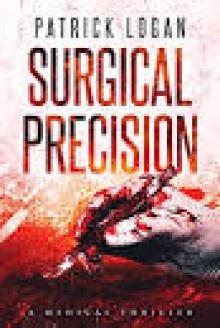 Surgical Precision
Surgical Precision Detective Damien Drake series Box Set 1
Detective Damien Drake series Box Set 1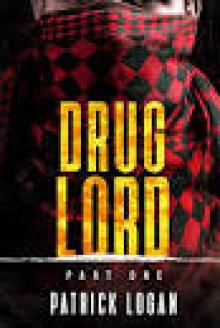 Drug Lord- Part I
Drug Lord- Part I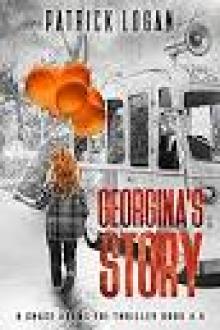 Georgina's Story
Georgina's Story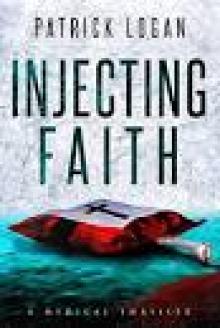 Injecting Faith
Injecting Faith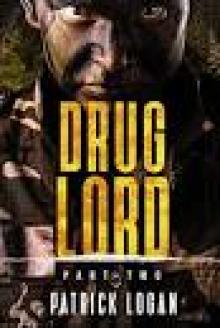 Drug Lord- Part II
Drug Lord- Part II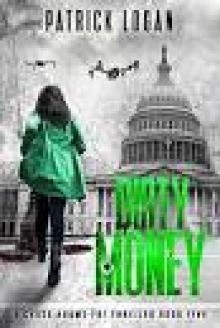 Dirty Money (A Chase Adams FBI Thriller Book 5)
Dirty Money (A Chase Adams FBI Thriller Book 5) Detective Damien Drake series Box Set 2
Detective Damien Drake series Box Set 2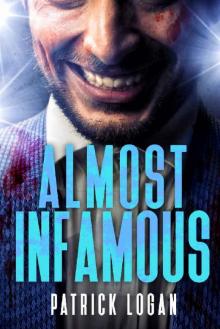 Almost Infamous (Detective Damien Drake Book 9)
Almost Infamous (Detective Damien Drake Book 9)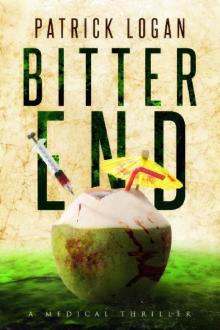 Bitter End
Bitter End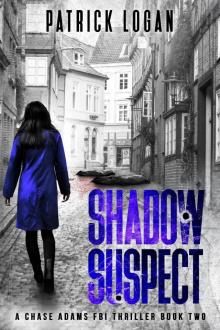 Shadow Suspect
Shadow Suspect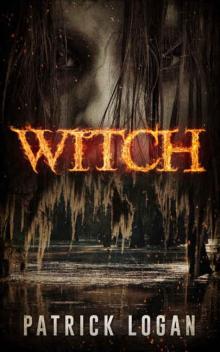 Witch
Witch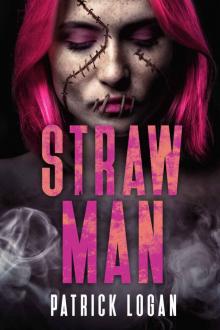 Straw Man
Straw Man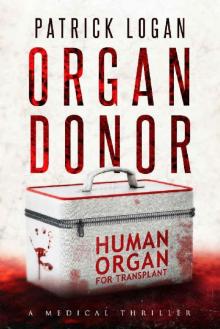 Organ Donor: A Medical Thriller (Dr. Beckett Campbell, Medical Examiner Book 1)
Organ Donor: A Medical Thriller (Dr. Beckett Campbell, Medical Examiner Book 1)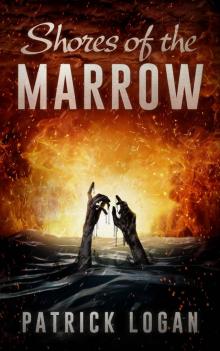 Shores of the Marrow
Shores of the Marrow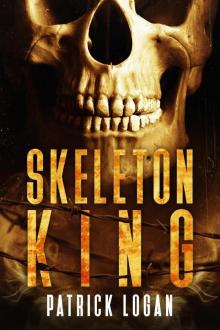 Skeleton King
Skeleton King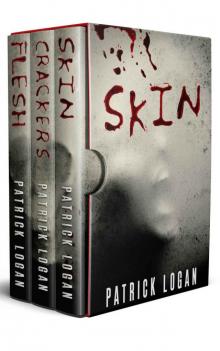 Insatiable Series Omnibus Edition (Books 1-3)
Insatiable Series Omnibus Edition (Books 1-3)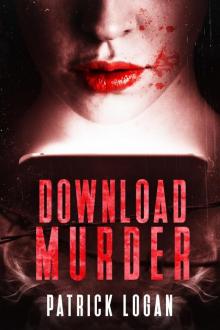 Download Murder
Download Murder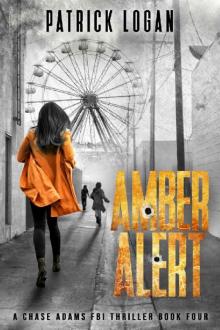 Amber Alert
Amber Alert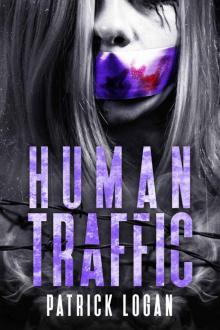 Human Traffic
Human Traffic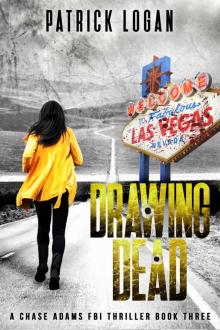 Drawing Dead (A Chase Adams FBI Thriller Book 3)
Drawing Dead (A Chase Adams FBI Thriller Book 3)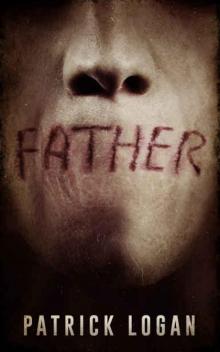 Father
Father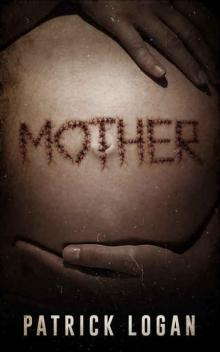 Mother
Mother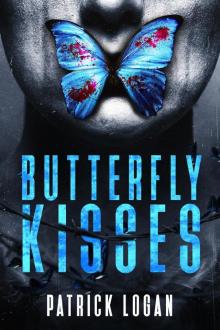 Butterfly Kisses
Butterfly Kisses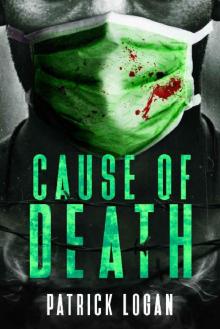 Cause of Death
Cause of Death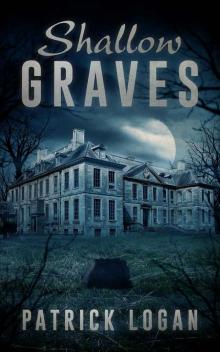 Shallow Graves (The Haunted Book 1)
Shallow Graves (The Haunted Book 1)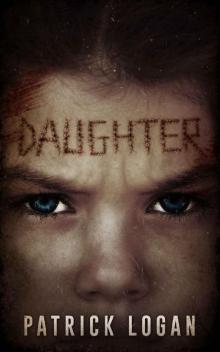 Daughter (Family Values Trilogy Book 3)
Daughter (Family Values Trilogy Book 3)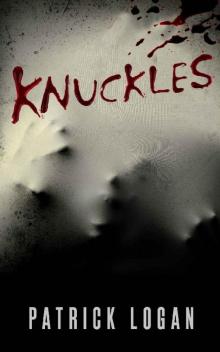 Knuckles
Knuckles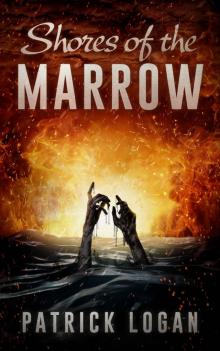 Shores of the Marrow (The Haunted Book 6)
Shores of the Marrow (The Haunted Book 6)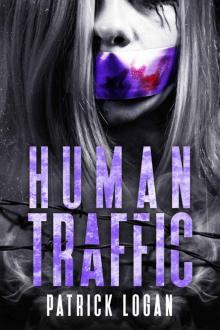 Human Traffic (Detective Damien Drake Book 5)
Human Traffic (Detective Damien Drake Book 5)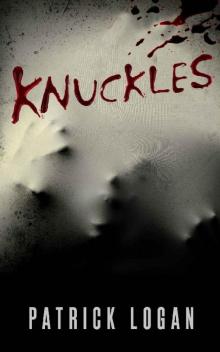 Knuckles (Insatiable Series Book 4.5)
Knuckles (Insatiable Series Book 4.5)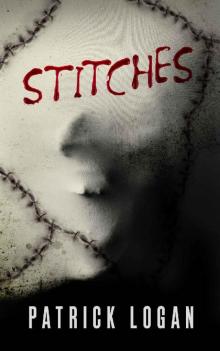 Stitches (Insatiable Series Book 5)
Stitches (Insatiable Series Book 5)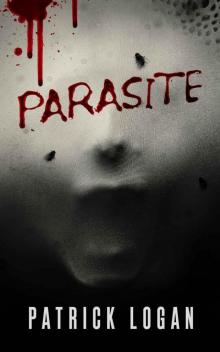 Parasite
Parasite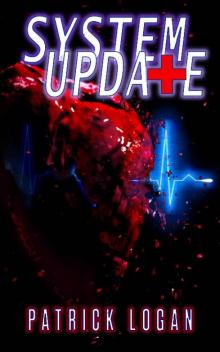 System Update
System Update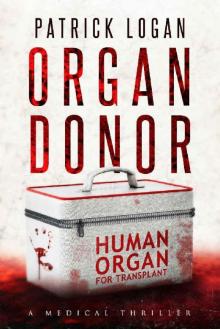 Organ Donor_A Medical Thriller
Organ Donor_A Medical Thriller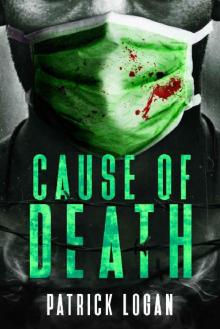 Cause of Death (Detective Damien Drake Book 2)
Cause of Death (Detective Damien Drake Book 2)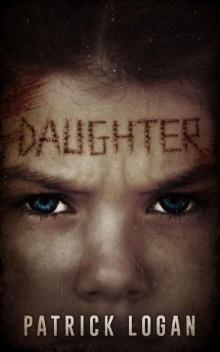 Daughter
Daughter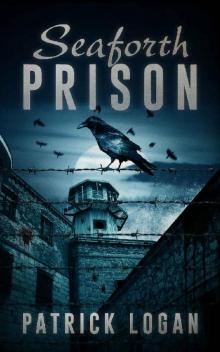 Seaforth Prison (The Haunted Book 3)
Seaforth Prison (The Haunted Book 3)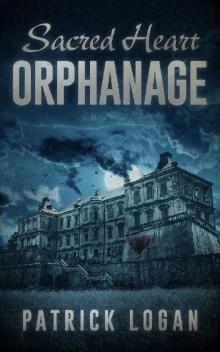 Sacred Heart Orphanage (The Haunted Book 5)
Sacred Heart Orphanage (The Haunted Book 5)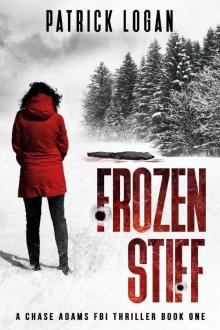 Frozen Stiff
Frozen Stiff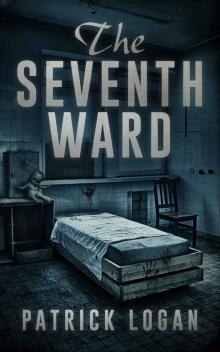 The Seventh Ward (The Haunted Book 2)
The Seventh Ward (The Haunted Book 2) Drawing Dead
Drawing Dead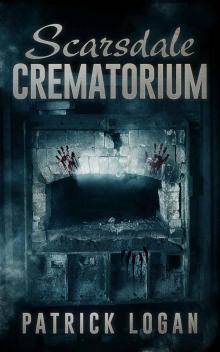 Scarsdale Crematorium (The Haunted Book 4)
Scarsdale Crematorium (The Haunted Book 4)